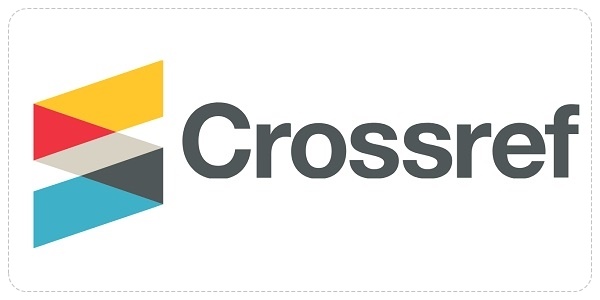KESIAPAN GURU MI/SD MENERAPKAN PEMBELAJARAN DALAM JARINGAN PADA MASA PANDEMI COVID-19
Abstract
Abstrak
Penelitian ini bertujuan untuk memperoleh informasi mengenai tingkat kesiapan guru khususnya pada jenjang Pendidikan Dasar (MI/SD) dalam mengimplementasikan pembelajaran dalam jaringan di tengah-tengah pandemi COVID-19. Guru pada jenjang MI/SD memiliki tantangan yang lebih berat dibandingkan pada jenjang menengah dan tinggi. Pada jenjang ini terdapat kompleksitas yang cukup tinggi baik dalam hal kompetensi guru terhadap penguasaan IT maupun kondisi siswa yang cenderung belum mampu melaksanakan pembelajaran secara mendiri. Metode yang digunakan dalam penelitian ini adalah metode deskriptif dengan pendekatan kuantitatif. Adapun subjek penelitian ini yaitu berjumlah 10 orang guru MI/SD yang berasal dari Kabupaten Bandung Barat, Jawab Barat yang dipilih melalui teknik simple random sampling. Pengumpulan data dilakukan melalui survei. Hasil dari penelitian ini menunjukkan bahwa (1) tingkat pemahaman guru tentang konsep pembelajaran dalam jaringan tergolong Cukup (54%); (2) tingkat kesiapan pada aspek perencanaan pembelajaran dalam jaringan tergolong Sangat Tinggi (86,5%); (3) tingkat kesiapan pada aspek pelaksanaan pembelajaran dalam jaringan tergolong Cukup (64,5%); (4) tingkat kesiapan pada asepek evaluasi pembelajaran dalam jaringan tergolong Sangat Rendah (30,5%). Secara umum kesiapan guru SD/MI berada pada kategori Cukup (60,5%), sehingga diperlukan peningkatan kualitas guru dalam menerapkan pembelajaran dalam jaringan melalui pelatihan atau workshop.
Abstract
The COVID-19 pandemic has hit the world, including Indonesia and gavi an impact to implementation of educational activities. Educational activities that were previously held conventionally turned into online classes that need various technologies. In this case, teachers as an implementer need to have good readiness so that educational activities can run properly. This study aims to obtain information about the level of readiness of teachers, especially at the Primary Education in implementing online learning in the midst of the COVID-19 pandemic. The method used in this research is descriptive method with a quantitative approach. Subjects in this study were 10 teachers who came from West Bandung Regency, West Java who were selected through simple random sampling technique. Data collection was carried out through surveys. The results of this study indicate that (1) the level of teacher understanding of the concept of online learning is enought (54%); (2) the level of readiness in the planning aspects of learning in the network is classified as very high (86.5%); (3) the level of readiness in the aspect of implementing online learning is classified as enought (64.5%); (4) the level of readiness in the learning evaluation aspect of the network is classified as very low (30.5%). In general, SD / MI teachers' readiness is in the Enough category (60.5%), so it is necessary to improve the quality of teachers in implementing online learning through training or workshops.
Keywords
Full Text:
PDF (Bahasa Indonesia)References
Adkins, S. S. (2020). The 2019 Global Learning Technology Investment Patterns : Another Record Shattering Year. 1–88. https://seriousplayconf.com/wp-content/uploads/2020/01/Metaari-2019-Global-Learning-Technology-Investment-Patterns.pdf
Aji, R. H. S. (2020). Dampak Covid-19 pada Pendidikan di Indonesia: Sekolah, Keterampilan, dan Proses Pembelajaran. SALAM: Jurnal Sosial Dan Budaya Syar-I, 7(5). https://doi.org/10.15408/sjsbs.v7i5.15314
Anugrahana, A. (2020). Hambatan, Solusi dan Harapan: Pembelajaran Daring Selama Masa Pandemi Covid-19 Oleh Guru Sekolah Dasar. Scholaria: Jurnal Pendidikan Dan Kebudayaan, 10(3), 282–289. https://doi.org/10.24246/j.js.2020.v10.i3.p282-289
Arif, Istyadji, M., & Syahmani. (2018). Implementation Of Problem Based Learning Assistance Of Online Discussion on Problem Solving Ability and Results of Chemical Learning In Supporting. JCAE, Journal of Chemistry And Education, 1(3), 237–244.
Arini, S., & Kurniawati, F. (2020). Sikap Guru terhadap Anak Usia Dini dengan Autism Spectrum Disorder. Jurnal Obsesi : Jurnal Pendidikan Anak Usia Dini, 4(2), 639. https://doi.org/10.31004/obsesi.v4i2.410
Arnold, V. D. (1988). Planning for effective instruction. Teacher Educator, 24(3), 10–12. https://doi.org/10.1080/08878738809554938
Baig, M. A. (2011). Research Papers A Critical Study Of Effectiveness Of Online Learning On Students ’ Achievement. I-Manager’s Journal of Educational Technology, 7(4), 28–34.
Bates, A., & Poole, G. (2003). No Effective teaching with technology in higher education: foundations for success. Jossey Bass.
Berty, T. T. S. (2020). 10 Negara Ini Lockdown Akibat Corona COVID-19, Terbaru Belgia. https://www.liputan6.com/global/read/4204969/10-negara-ini-lockdown-akibat-corona-covid-19-terbaru-belgia
Delen, E., & Liew, J. (2016). The Use of Interactive Environments to Promote Self-Regulation in Online Learning: A Literature Review. 14(1), 24–33. https://doi.org/10.13187/ejced.2016.15.24
Dewi, L. (2017). Designing Online Learning in Higher Education Institution: Case Study in Curriculum and Instruction Course at Indonesia University of Education. 16(2), 205–221.
Hapsari, D. Y. T. (2015). Kemampuan Guru Dalam Mengembangkan, Mengimplementasikan, Dan Mengevaluasi Kurikulum 2013. Indonesian Journal of Curriculum and Educational Technology Studies, 3(1), 24–30. https://doi.org/10.15294/ijcets.v3i1.8680
Iqbal, Mansoor. (2021). Zoom Revenue and Usage Statistics (2020). https://www.businessofapps.com/data/zoom-statistics/
Iqbal, Muhammad, Latifah, S., & Irwandani. (2019). Pengembangan Video Blog (Vlog) Channel Youtube Dengan Pendekatan Stem Sebagai Media Alternatif Pembelajaran Daring. Inovasi Pembangunan : Jurnal Kelitbangan, 7(2), 135. https://doi.org/10.35450/jip.v7i2.140
Jalal, M. (2020). Kesiapan Guru Menghadapi Pembelajaran Jarak Jauh Di Masa Covid-19. SMART KIDS: Jurnal Pendidikan Islam Anak Usia Dini, 2(1), 35. https://doi.org/10.30631/smartkids.v2i1.61
Jamilah. (2020). Kesiapan Guru Sekolah Dasar Dalam Pelaksanaan. Prosiding Konferensi Nasional Pendidikan, 2(1), 67–77.
Kuntarto, E. (2017). Journal Indonesian Language Education and Literature. Journal Indonesian Language Education and Literature, 3(1), 99–110. https://doi.org/http://dx.doi.org/10.24235/ileal.v3i1.1820 99
Landy, D., & Goldstone, R. L. (2005). How we learn about things we don’t already understand. Journal of Experimental and Theoretical Artificial Intelligence, 17(4), 343–369. https://doi.org/10.1080/09528130500283832
Larson, L., Vontz, T., Larson, L., & Vontz, T. (2018). An Alternative Pathway to Elementary Teaching An Alternative Pathway to Elementary Teaching. 44(1).
Perouse, R. la, & OECD, T. (2020). Impact and Implications of the COVID 19-Crisis on Educational Systems and Households: TUAC Secretariat Briefing. Trade Union Advisory Committee, April, 1–9.
Phan, T. T. N., & Dang, L. T. T. (2017). Teacher Readiness for Online Teaching: A Critical Review. Int. J. Open Distance E-Learn. IJODeL, 3(1), 1–16. http://ijodel.com/wp-content/uploads/2017/12/001_Phan_Dang.pdf
Purwanto, A., Pramono, R., Asbari, M., Santoso, P. B., Wijayanti, L. M., Choi, C. H., & Putri, R. S. (2020). Studi Eksploratif Dampak Pandemi COVID-19 Terhadap Proses Pembelajaran Online di Sekolah Dasar. EduPsyCouns: Journal of Education, Psychology and Counseling, 2(1), 1–12. https://ummaspul.e-journal.id/Edupsycouns/article/view/397
Rasmitadila, Aliyyah, R. R., Rachmadtullah, R., Samsudin, A., Syaodih, E., Nurtanto, M., & Tambunan, A. R. S. (2020). The perceptions of primary school teachers of online learning during the covid-19 pandemic period: A case study in Indonesia. Journal of Ethnic and Cultural Studies, 7(2), 90–109. https://doi.org/10.29333/ejecs/388
Rusman. (2013). Model-model Pembelajaran, Mengembangkan Profesionalisme Guru. Rajawali Press.
Scherer, R., Howard, S. K., Tondeur, J., & Siddiq, F. (2021). Profiling teachers’ readiness for online teaching and learning in higher education: Who’s ready? Computers in Human Behavior, 118(January 2021), 106675. https://doi.org/10.1016/j.chb.2020.106675
Shelton, B. E., Hung, J., & Lowenthal, P. R. (2017). Predicting student success by modeling student interaction in asynchronous online courses. Distance Education, 7919(April), 1–11. https://doi.org/10.1080/01587919.2017.1299562
So, T., & Swatman, P. M. C. (2006). e-Learning readiness of Hong Kong teachers. Hong Kong IT in Education Conference, February, 6–8. http://blog.uny.ac.id/nurhadi/files/2010/08/swatman-hongkong.pdf
Surjono, H. (2013). Membangun Course E-learning Berbasis Moodle. UNY Press.
Sutrisno. (2020). Peningkatan Aktivitas Dan Hasil Belajar Melalui Pembelajaran Online Dengan Google Classroom Di Masa Pandemi Covid-19 Increased Learning Activities and Outcomes Through Online Learning With Google Classroom in the Covid-19 Pandemic Period. 5(1), 95–106.
Syarifudin, A. S. (2020). Implementasi Pembelajaran Daring untuk Meningkatkan Mutu Pendidikan Sebagai Dampak Diterapkannya Social Distancing. Jurnal Pendidikan Bahasa Dan Sastra Indonesia, 5(1), 31–34.
Vynck, G. De, & Bergen, M. (2020). Google Classroom Users Doubled as Quarantines Spread. https://www.bloomberg.com/news/articles/2020-04-09/google-widens-lead-in-education-market-as-students-rush-online
Wei, H., & Chou, C. (2020). Online learning performance and satisfaction : do perceptions and readiness matter ? Distance Education, 00(00), 1–22. https://doi.org/10.1080/01587919.2020.1724768
Wena, I. M. (2009). Strategi Pembelajaran Inovatif Kontemporer. Bumi Aksara.
DOI: https://doi.org/10.17509/pdgia.v19i1.32585
Refbacks
- There are currently no refbacks.
INDEXED BY

This work is licensed under a Creative Commons Attribution-ShareAlike 4.0 International License















